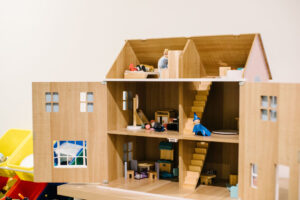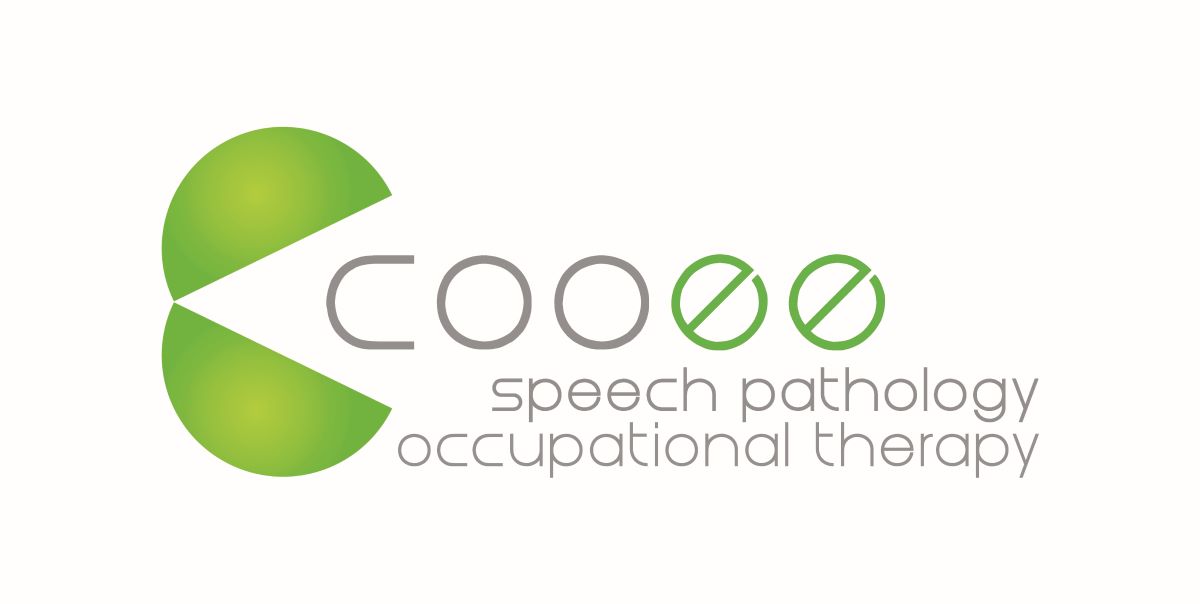OT for Autistic Children
How can Occupational Therapy help?
Occupational therapists are allied health professionals that work with children with Autism! Occupational therapists help children to do their ‘occupations’ – which is playing, learning and being a friend/family member!
Autistic Children (Children diagnosed on the Autism Spectrum) can often have difficulties in their moving through their day to day tasks, and our Occupational Therapists can help them learn to engage with others, sequence and organise themselves through routines and daily life, and also play with their friends and siblings.
At Cooee Speech we adopt a Neuro-affirming approach to working with Autistic Children. You can read more about this approach on our blog here!
Organising and daily routines
Autistic Children can often find the daily routine unpredictable, and this can often cause anxiety and behavioural responses.
Occupational therapy helps children:
- Manage the organisation of the day.
- Helps children to move through the day more smoothly and transition between activities.
- How to successfully complete a routine (e.g. getting dressed).
Activities of daily life
Autistic Children can have difficulty completing daily tasks, and learning to be independent.
Occupational therapy can:
- Help children complete activities and tasks the need to do each day, through task analysis and visual supports:
- Dress themselves
- Go to the toilet independently and experience success
- Independently bath or shower
- Start to be involved in meal preparation
- Provide consultative support in relation to sensory needs involved with Feeding Skills
Problem solving and planning skills
Autistic Children often find flexible thinking, problem solving and planning what they need to do tricky.
Occupational therapists can assist your child to:
- Use cognitive-based strategies to combat any problems that come up in that day.
Learn to problem solve flexible and plan through play based based approaches.
Managing emotions and behaviour
Occupational therapists regularly see Autistic Children to assist them with managing their emotions, regulating their sensory system and making a plan to manage their emotion related responses.
Occupational therapists intervene through:
- Self regulation and co regulation child and parent training
- Helping children recognise body cues related to emotions and make choices to regulate
- Help children to recognise the body cues and what that means for them and how it connects to an emotion or feeling
- We support psychology intervention aimed at anxiety by helping children to develop solid strategies and plans to help them down regulate. OTs don’t focus on the mental health side of things but more work on the how to implement strategies, sequence actions to regulate and planning around prevention of spikes in anxiety/regular breaks to avoid anxiety.
Developing play and social skills
Play and social skills are often areas supported for Autistic Children.
Occupational therapists can assist Autistic Children to develop:
- Imaginative and pretend play skills.
- Modification of their arousal level to be able to engage & interact – down regulate/up regulate.
Motor skills
Autistic Children may also experience difficulties with the fine and gross motor skills.
Occupational therapists can assist your child with:
- Fine motor skill development – learning to develop their grasp, pencil control, drawing and writing ability.
Gross motor skills and postural control – developing their ability to remain in an upright position for table top activities and engagement in play and social games.
Attention and concentration
Due to altered sensory processing patterns in Autistic Children, occupational therapists can assist children with autism and those around them to develop tools and strategies to help them attend and concentrate in their everyday activities.
This includes:
- Working with teachers – regulation based activities to help anybody to unlock the child.
- Use of task analysis to determine where the child’s breakdown is happening. We do this in terms of them being able to access the day and being able to keep regulated in a school environment and knowing what to do when they become dysregulated.
- Developing cognitive based strategies to improve focus on important information and tasks and to help them block out unimportant information (distractions).
Should we do SP and OT at the same time?
Yes!! For many reasons.
Occupational Therapy support can allow families to get the most out of their speech pathology intervention. With OT support in areas around sensory regulation, attention and concentration, problem solving and play – the families and speech pathologists can focus on maximising communication outcomes.
OT alongside SP will work on:
- Play based intervention – which will help maximise the reciprocal communication and back and forth interaction that the Speech Pathologists target
- Learning activities and routines in play because it reduces anxiety and improve their ability to sequence ideas (leaning into later language skills and story telling)
- Integrating information into social settings – when we work on the play based elements of interaction therapy that then makes it more translatable to a social setting and gives children an opportunity to explore what they can do if they want to join in with other kids but don’t yet have the language or want to take a break but don’t know how and get upset instead.
We can help you get started, our Client Journey Planning sessions dedicate time to listening to families, understanding their unique needs & providing education about what is involved in the therapy journey.
